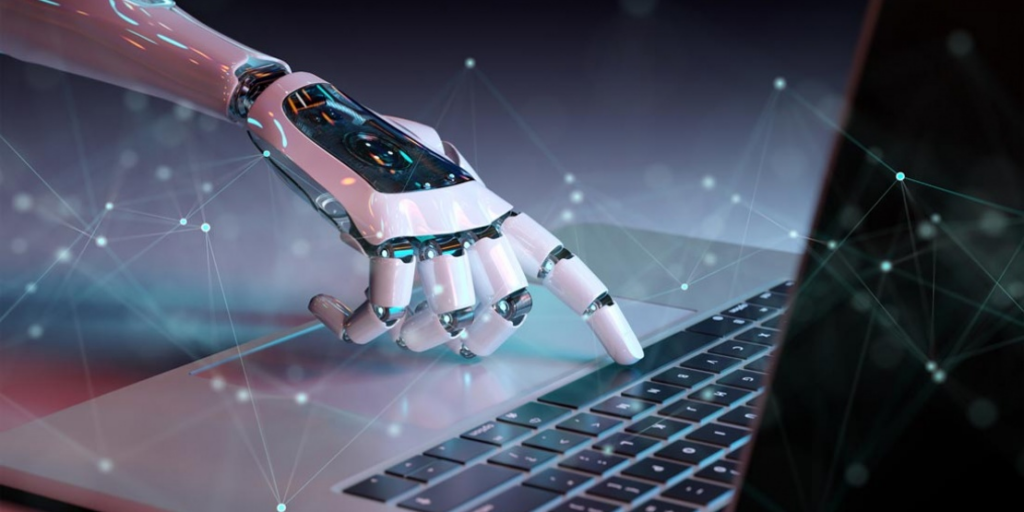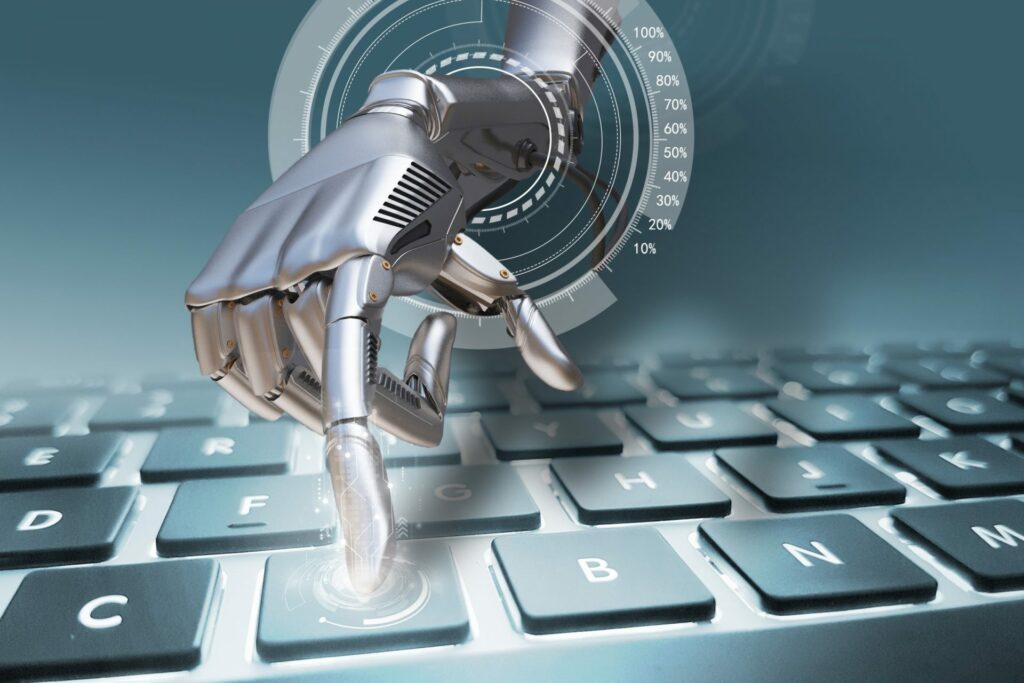The advent of artificial intelligence (AI) is reshaping the familiar contours of the workplace, bringing with it a wave of change unlike any before. This transformation doesn’t just signal a shift in the tools and technologies we use; it marks an evolution in the very essence of work. From automatons on factory floors to sophisticated algorithms predicting market trends, AI has become an indispensable protagonist in the narrative of modern labour.
In this blog post, we will unpack the multifaceted impact of AI on the world of work. We will explore how machine learning is optimising productivity, how data-driven decision-making is outpacing human analysis, and the implications of these advancements on the future job market.
Join us as we dig deep into the interplay between human ingenuity and the ceaseless march of technological progress, and what it ultimately portends for professionals across all sectors.
Automating routine tasks
Much like the introduction of computers, AI has the potential to be groundbreaking when it comes to productivity and speeding up routine tasks. It can be used to automatically schedule diaries, take notes, complete data-entry tasks, filing and much more. This leaves employees free to focus on more creative tasks that need human input or collaboration.
These tasks are often seen as something to get done as quickly as possible, but for some roles, such as receptionists, they form a large part of their responsibilities. Therefore, these workers may find that their role moves towards controlling AI technology, with a higher focus on providing a personalised service, solving sensitive problems that AI can’t. In turn, this will change the customer experience too, with many clients expecting to be able to do straightforward tasks, like booking appointments, online.

Breaking down barriers
Professional development is an important part of any job role, but traditional courses don’t suit everyone, and written exams can mean a higher failure rate if this assessment style doesn’t suit. Plus, these courses are often expensive and time-consuming, and many companies won’t offer a training budget. As a result, many people find it hard to progress in their careers, or switch to a new one.
AI can be a fantastic tool for providing personalised learning at low cost, helping employees expand their knowledge in a way that suits them. Whilst they might not be able to do anything about the assessment method, perhaps in time, AI may open the doors for creating different types of testing, such as virtual reality ‘practical’ tests. For now, it can help workers improve in their own way, potentially giving them more opportunities to progress. Additionally, with access to a computer, they are more likely to be able to study at a time that suits them.
Giving greater insight
Data acquisition is an important part of many industries – data gives businesses a solid insight into customer behaviour, which can influence decision making. However, gathering this information and pulling out the key insights can be challenging and time-consuming when done manually.
In comparison, AI can offer detailed insight into many types of datasets, identifying themes incredibly quickly. Not only does this save time, but it removes the innate human bias that sometimes interferes with gathering information. Plus, with the right permissions, it can bring in insights from other data sources across your company, spotting opportunities for collaboration across teams.
Changing the types of roles
AI can do a lot, but it’s not totally independent of human input. Someone still needs to instruct it and set it running, and in some cases, review the content it churns out. This has led to the creation of a variety of new roles which focus on AI-generated output, such as AI content proofreaders. Additionally, software engineers are needed to create new AI programs in the first place.
On the other hand, the rise of AI means that some jobs are disappearing too, as companies look to move their operations online and cut costs. Whilst workers in manual labour jobs are fairly safe, many office workers are increasingly concerned about the impact of AI on their future.
The future of business
The last few years have seen a huge increase in the number of people using AI at work, and it’s unlikely that will change anytime soon. Whilst it’s understandable that this causes many people concern, it’s also important to recognise the areas where AI can enhance your job, making your life easier as you focus on more complex tasks.


